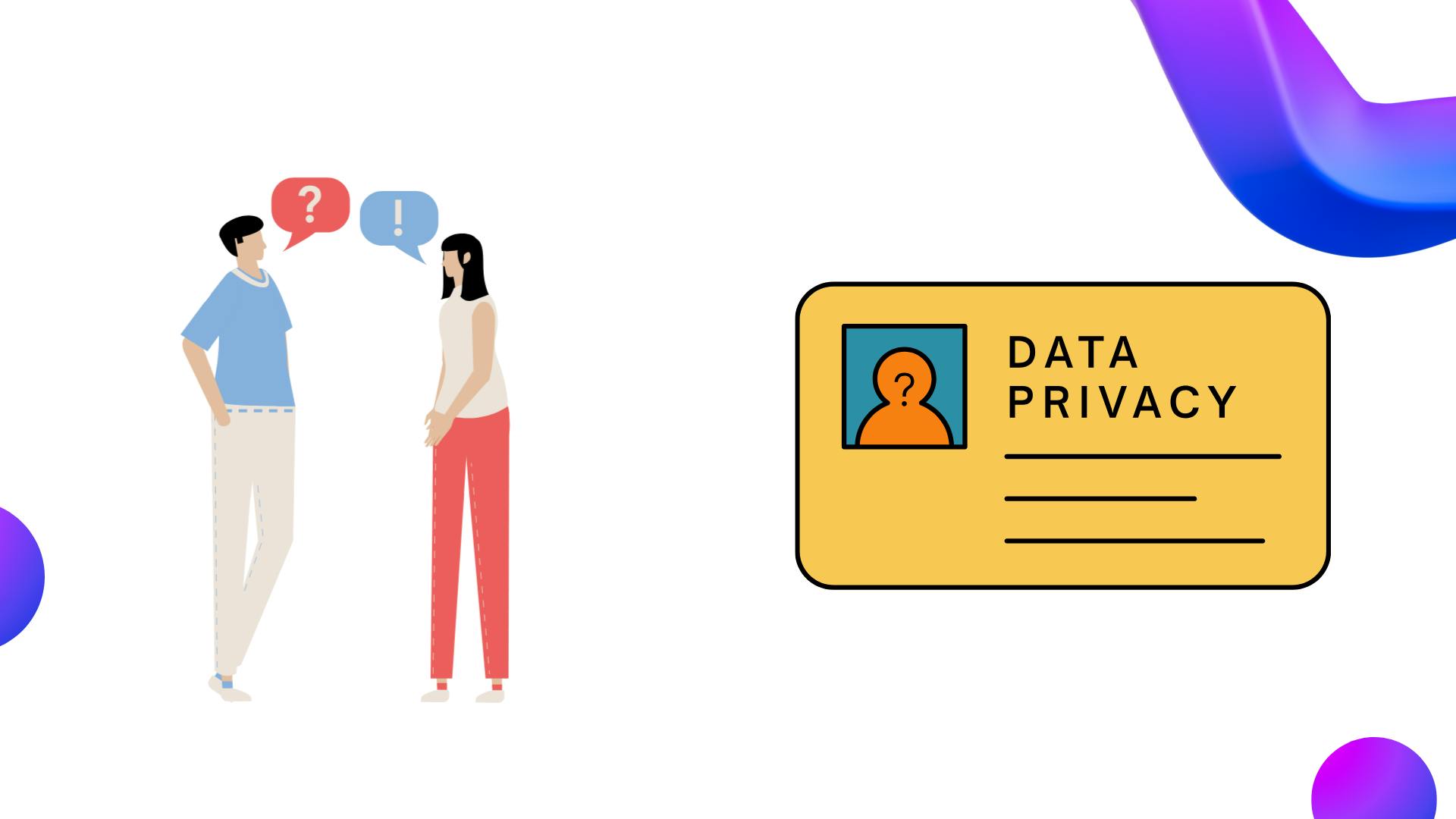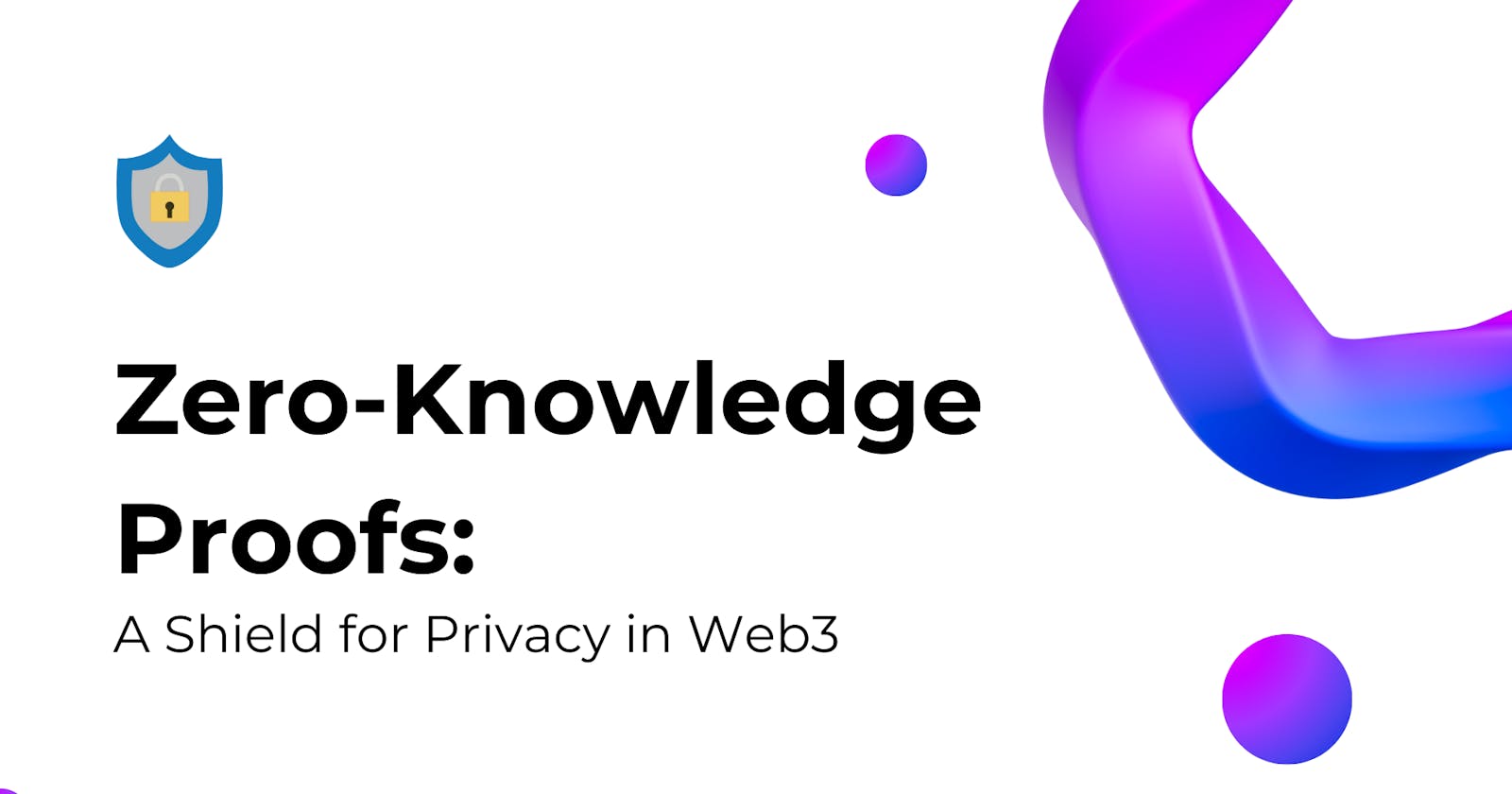The importance of privacy has become paramount in Web3, where decentralization and blockchain technologies are transforming the digital landscape. As individuals increasingly engage in online activities that involve sensitive information, the need for robust privacy solutions has never been more crucial. One groundbreaking technology that is emerging as a powerful ally in safeguarding privacy is Zero-Knowledge Proofs (ZKPs).
In this article, we will explore the concept of Zero-Knowledge Proofs, their applications, and how they serve as an impenetrable shield for privacy in the decentralized Web3 ecosystem.
Understanding Zero-Knowledge Proofs:
Zero-knowledge proofs are cryptographic protocols that enable one party (the prover) to prove to another party (the verifier) that they possess certain knowledge without revealing the actual knowledge itself. The key idea is to convince the verifier that a statement is true without disclosing any information about the statement. This revolutionary concept was first introduced by Shafi Goldwasser, Charles Rackoff, and Silvio Micali in 1985, and since then, Zero-Knowledge Proofs have evolved into a powerful tool for enhancing privacy in various domains.

How Zero-Knowledge Proofs Work:
Zero-knowledge proofs possess the ability to demonstrate knowledge of a specific piece of information without revealing the information itself. The process involves a series of interactive steps between the prover and verifier, where the prover aims to convince the verifier of the truth of a statement. Through this interaction, the verifier gains confidence in the validity of the statement without learning anything beyond its truthfulness.
To illustrate, consider a scenario where the prover wants to convince the verifier that they know a secret password without actually disclosing the password. In a Zero-Knowledge Proof, the prover can engage in a protocol that demonstrates their knowledge of the password without revealing the password itself. The verifier, after the interaction, becomes convinced of the prover's knowledge without learning any details about the password.

Applications in Web3:
The decentralized and transparent nature of Web3 brings numerous benefits, but it also poses challenges, particularly in terms of privacy. Zero-knowledge proofs offer an elegant solution to address these challenges and unlock the full potential of decentralized technologies. Here are some key applications of Zero-Knowledge Proofs in Web3:
Privacy-Preserving Transactions: One of the primary applications of Zero-Knowledge Proofs in Web3 is privacy-preserving transactions. Traditional blockchain networks often expose transaction details, including sender and receiver addresses and transaction amounts. Zero-knowledge proofs allow users to transact privately by proving the validity of a transaction without revealing any specific details. This is particularly valuable in financial transactions where privacy is a fundamental requirement.
Identity Management: Web3 aims to provide users with greater control over their digital identities. Zero-knowledge proofs can be employed to verify identity without disclosing unnecessary information. Users can prove that they are of a certain age or possess a specific credential without revealing their full identity, thus striking a balance between privacy and authentication.
Decentralized Finance (DeFi): In the rapidly growing sector of decentralized finance, where smart contracts govern financial transactions, Zero-Knowledge Proofs play a crucial role. Users can engage in various financial activities, such as lending or trading, without exposing sensitive information. ZKPs ensure that the necessary conditions are met without disclosing the details of the underlying transactions.
Supply Chain Transparency: The supply chain industry can benefit from Zero-Knowledge Proofs to enhance transparency without compromising confidentiality. Participants in a supply chain can prove the authenticity of a product or the completion of a milestone without revealing proprietary information to other participants.
Securing Digital Assets: With the rise of non-fungible tokens (NFTs) and digital assets, the need for privacy in asset ownership becomes evident. Zero-knowledge proofs enable users to prove ownership of digital assets without broadcasting their holdings to the entire network. This enhances security and reduces the risk of targeted attacks.
Challenges and Future Developments:
While Zero-Knowledge Proofs offer a powerful solution for privacy in Web3, there are challenges and considerations to address. One notable challenge is the computational overhead associated with certain types of Zero-Knowledge Proofs. Some implementations can be resource-intensive, impacting transaction speeds and overall system performance.
As the technology grows bigger, researchers and developers are actively working on optimizing zero-knowledge-proof systems. Innovations such as zk-SNARKs, zk-STARKs, and zk-Rollups aim to improve the efficiency and scalability of Zero-Knowledge Proofs.
Moreover, ongoing research explores the integration of Zero-Knowledge Proofs with other privacy-enhancing technologies, creating a layered approach to privacy in Web3. This includes combining Zero-Knowledge Proofs with technologies like homomorphic encryption and secure multi-party computation to achieve comprehensive privacy solutions.
Conclusion:
Zero-knowledge proofs have the potential to redefine the landscape of digital privacy. Whether in financial transactions, identity verification, or supply chain management, the versatility of ZKPs makes them a potent tool for individuals and organizations seeking to harness the benefits of Web3 without sacrificing privacy.
Future integrations of Zero-Knowledge Proofs with other cutting-edge technologies are likely to pave the way for even more secure and scalable privacy solutions. As we navigate the complexities of a decentralized future, Zero-Knowledge Proofs stand as a shield, protecting the essence of privacy in the Web3 ecosystem.
